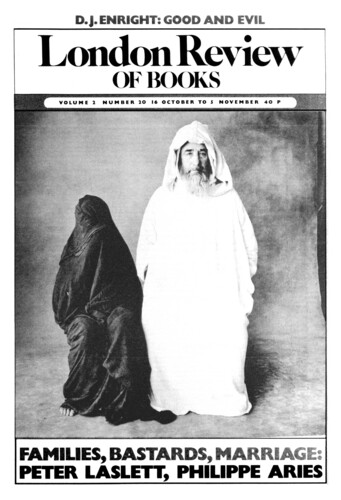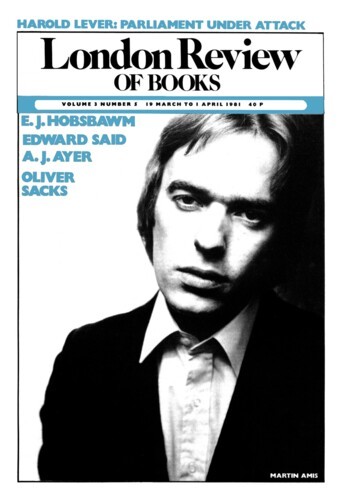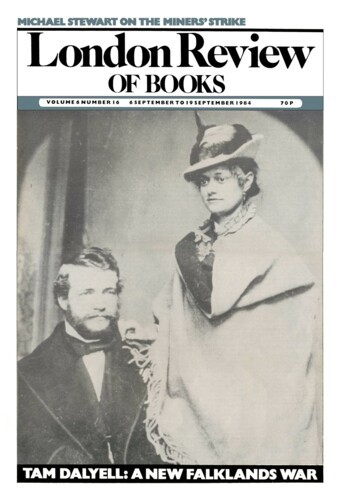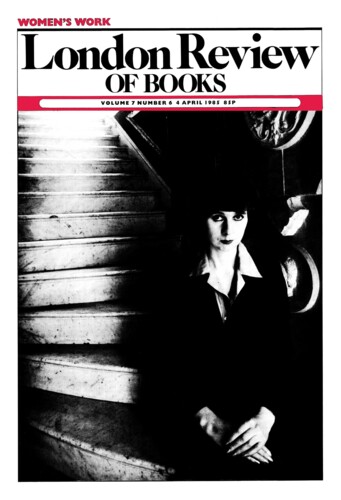E.E. Duncan-Jones
E.E. Duncan-Jones was formerly a reader in English at the University of Birmingham and is the author, as E.E. Phare, of The Poetry of Gerard Manley Hopkins.
Letter
SIR: Your reviewer is mistaken in saying (LRB, 16 October) that Luttrell, the famous wit of Holland House, left nothing in print. The best of his published poems, Advice to Julia (1820), was at once despatched by John Murray to Byron then in Ravenna; Byron, thought it ‘very good indeed’. Eleven years later Macaulay describes it to his sister Hannah as ‘neat, lively, piquant, and showing the most...
Letter
Proust Regained
19 March 1981
SIR: John Sturrock does not in his estimable review (LRB, 19 March) inspire full confidence in Terence Kilmartin’s revision of Scott-Moncrieff’s translation of Proust. It is impossible to judge with certainty of the aptness of translations of clauses and phrases taken out of context. But the dozen or so examples of changes made by Kilmartin that Sturrock gives are picked from many that he came...
Letter
Doing my little owl
6 September 1984
SIR: In January 1918 Virginia Woolf writes in her Diary (LRB, 6 September) of a small book of verse published by Clive Bell: ‘very pretty and light … He can do his little owl very efficiently.’ The context suggests that this mysterious expression means something like ‘he can perform adequately some not very impressive task.’ Again, in September 1934, of a party at Charleston: ‘They acted:...
Letter
The Case for Geoffrey Hill
4 April 1985
SIR: It seems hard that Geoffrey Hill can’t use the first four words of Psalm 47, frankly enclosed I within quotation-marks, ‘O clap your hands,’ without being accused by your reviewer Tom Paulin of dependence on Yeats’s ‘unless Soul clap its hands’. The words ‘clap’ and ‘hands’ occur in the passage from Yeats as they do in, say, the address to Tinker Bell. Psalm 47 is bound up...
Letter
Puellilia
7 August 1986
SIR: It is possible to be glad that Mary Brunton’s novel Self-Control (1811) has been republished without being able to perceive that it is, in Pat Rogers’s words (LRB, 7 August), ‘beautifully constructed’, still less that, as the blurb says, it ‘still has great significance today’. But it ought not to appear under the protection of Jane Austen. Sara Maitland’s statement in the Preface...
Read anywhere with the London Review of Books app, available now from the App Store for Apple devices, Google Play for Android devices and Amazon for your Kindle Fire.
Sign up to our newsletter
For highlights from the latest issue, our archive and the blog, as well as news, events and exclusive promotions.





